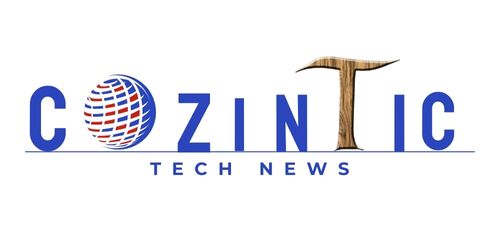The high challenges of the Flexport CEO, Ryan Petersen, in the midst of tariff disorders: “ You cannot panic ”
At 11 a.m. in California last Thursday, the day after President Donald Trump, new prices under what he nicknamed “Liberation Day”, Ryan Petersen was live to the camera, answering questions from a virtual room filled with more than 2,300 anxious customers. The founder and CEO of FlexportA global logistics and customs brokerage company now aged 12, spent the previous night studying the small characters itself, preparing to explain a vertiginous new reality for us importers.
“We have broken our platform live,” said Petersen half joking that night to The strictlyvc event of Techcrunch in San Francisco. “We have to get a better one.”
In less than 24 hours, the world of world trade has been upset – and there are still. Cumulative rates as high as 79% will soon be applied to a range of products from China, including sofas. Direct shipping models to consumers, formerly protected by the threshold of less than $ 800 in minimized brake, are now subject to new customs obligations. Meanwhile, American ports are preparing for a proposed rule that could slap ocean carriers with up to 1.5 million dollars per port call if their ships are made in China – or even if they have one on order.
“It’s horrible for our customers,” said Petersen at the event. “For some of these companies, for many of our customers, [the spate of changes] will be existential decisions of life and death. »»
Flexport, one of the largest customs brokerage houses in the United States, has had no choice but to intensify quickly. Petersen had already spoken to 200 customers in person earlier in the year, many of whom strongly relying on Vietnam for production, thinking that they had diversified away from China.
But Petersen said it was not surprised that Vietnam was slapped with a price of 46%. “I expected that there are tasks almost everywhere, and that’s what we have seen.”
The real surprise, he noted, was the announcement little made that the United States would close the minimis program for imports worldwide-not only for China. The change affects the trade models of electronic commerce giants like Temu and Shein, as well as the thousands of shops based in Shopify which manage the accomplishment of neighboring Mexico.
“More than 30% of all brands of electronic commerce – Les Grandes – have set up their accomplishment in Mexico,” said Petersen. “So everything will disappear, or at least the franchise aspect of rights.”
Petersen – a believer in supposedly founding fashion Who speaks with up to 50 employees per day – did not wait to start getting the word. “I had to dig and try to understand this kind of thing,” he told the public. “And then when we started to have the impression of having understood, I wrote a blog article on De Minmis. I had sms to the guys from hedge funds. We were [also] the first to notice that semiconductors were sculpted. I had one of Nvidia’s biggest investors saying, “Where do you see that?” I say to myself: ‘ [says it in the new law]. ‘”
Unsurprisingly, what Flexport endeavored to offer following the new Trump pricing war was not only advice on logistics, as Petersen explained. It was stability. Flexport employees certainly needed it. “The first rule in a crisis is that everyone will come together around the calmest person in the play,” said Petersen. “You know, you are the leader of a business. You cannot panic, even if you are inside; Your business will panic. “
The cooler heads are something that Flexport customers also need right now. With pricing tables, customs rules and flow shipping costs, customers have turned to Flexport to give meaning to what looks like a full chaos.
And even more disturbances are looming. A proposal awaiting the US trade representative threatens to impose narcotic ships on ships built in Chinese, and even ships belonging to carriers with Chinese manufacturing ships in their fleet.
“They say they are going to get costs … If the ship is made in China, I think it’s a million dollars … a million and a half each time they come to the United States,” said Petersen.
The objective, according to the administration, is to stimulate American shipbuilding. The probable result, from Petersen’s point of view, is more widespread costs transmitted to us, and many maritime workers who lose their job as a ship seek to minimize the number of stops they make.
Despite the chaos, Petersen is not ready to call it the end of free trade. “Probably, it’s not permanent,” he said. “I spoke to one of the members of the cabinet … who told me that the Liberation Day would be the start and not the end of the process.”
He said he was encouraged that some countries responded, even before the maneuvers of the Trump administration. “Vietnam and Israel both came to the table and eliminated all the tasks on American goods this week,” noted Petersen.
This can offer a way to follow: silent negotiations, reciprocal offers and a redesigned global supply chain. In the meantime, Petersen and his team are standing, respond to phones, tweeting a storm and breaking webinar platforms to maintain the moving supply chain and remote panic.
You can consult this full interview – Petersen also talks about AI and why he adopted the founding mode – below.





